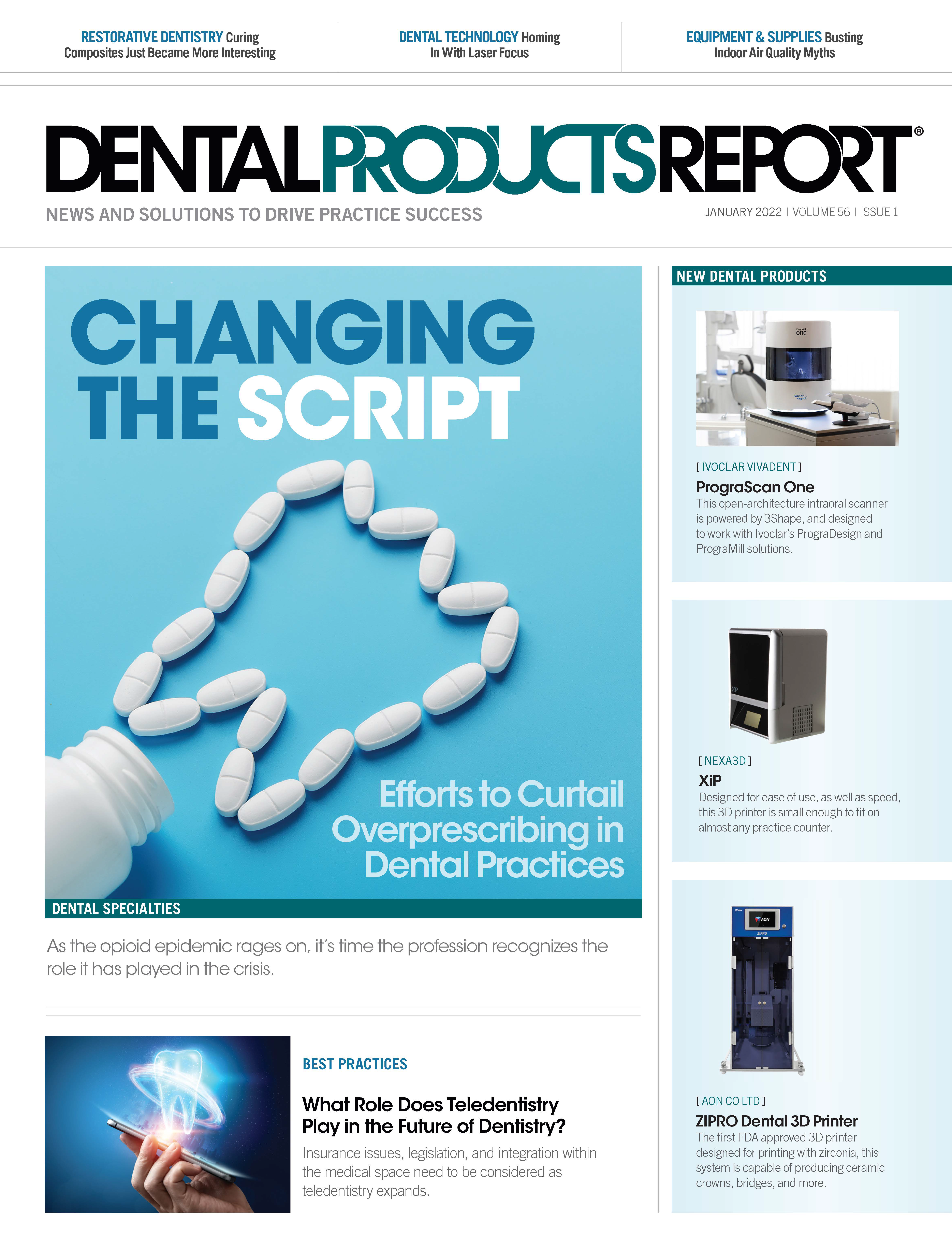Knowledge Is Power When Managing Prescriptions
The doctor-patient relationship is the most important factor when considering prescription management.
Knowledge is Power When Managing Presriptions. Photo courtesy of Steve Cukrow/stock.adobe.com.

I almost died when I was in dental school. In my first semester I had a vehicle collision that, by all the laws of physics, should have killed me. I will not go into detail but it was brutal. I have always been an avid seat belt user but, for some reason, that day I forgot to buckle up. If I had been buckled into my seat I would have died, but the good news was that the momentum threw me out of the way. The bad news was what broke that momentum: my face against the windshield. I suffered a massive concussion from which I never totally recovered.
The effects of a concussion can vary. For me, it had a serious impact on my short-term memory for about a year. Our training requires an incredible amount of memorization, and the consequences of my concussion forced me to work harder than I ever had. It was difficult. It also did not help when, into this bowl of spaghetti that was my short-term recall, I had to throw in 2 semesters of pharmacology. I would have had a tough time if my memory had been razor sharp, but it was worse due to my concussion.
When you consider that the world of pharmacology is constantly evolving, it gets even more difficult. It is not like learning an equation that might never change. Because of all this, one of my purchases every year was a new version of the Physicians’ Desk Reference (PDR).
For younger doctors who may not know about it, PDR was a large book that contained all pertinent information about almost every drug on the market. It was roughly 8½ by 11 in in size and 2 to 3 in thick. The thing was massive, and you had to buy a new one every year to keep current. Of course, being a book, this meant looking things up was slow and arduous.
That was why I was so glad I found a company called Lexicomp in the late 1990s. It published a series of reference guides for pharmacology—even one specific to dentistry.
Today, Lexicomp has evolved over the decades and completely embraced the digital world. It offers a subscription-based app that delivers about 10 reference textbooks, including the PDR-esque Lexicomp for Dentistry, to my iPhone. The app allows me to search for drug interactions between medications, access detailed information on office medical emergencies, and even get recommended dosages and sample prescriptions.
The subscription also comes with online access that you can get through your browser. Basically, no matter where I am, if I have internet access I can use it. It even has references for pathology. There is a database of soft tissue and hard tissue lesions. You select variables such as color or location and it runs the user through a decision tree of choices that narrow as more data are entered. It is a tremendous help for a general dentist such as myself who will refer cases to the appropriate specialist but still needs a good differential diagnosis.
The databases are constantly updated. Experts with doctorates in pharmacology are constantly monitoring information from a variety of sources. One of the biggest drawbacks of books was that when changes were made, your information was out of date and that could happen the day after you bought the PDR. Now, the moment information changes, it is reflected in the digital reference you are using.
The company makes a variety of products for different professions. What I really love about Lexicomp is that all the information I have in the app is designed for dentistry. I have information regarding how medications affect salivary flow or how they interact with local anesthetics. That is information unavailable in other drug reference guides.
As I stated above, pharmacology was always a difficult subject for me. However, I remember one of my mentors telling me: “Knowledge isn’t about always having every answer memorized. It’s about knowing where to find the answer when you don’t know what it is.” That is exactly what Lexicomp does for me. Simply put, using this system makes me better at what I do.
Big Data and Big Brother
On a different subject but still related to how we deal with prescription medications, let’s discuss something I am not as optimistic about. The United States has made a concerted effort to reduce the number of opioids and opiates being prescribed. It is a noble idea.
To help fight these problems, a variety of solutions has been suggested. One that concerns me is the use of artificial intelligence (AI) to determine whether a patient has a legitimate need for pain management.
Recently I have come across some interesting information regarding the proliferation of machine learning across many areas of our lives. Whether it is our photo databases, traffic patterns in major cities, or even ads for political candidates, AI is being utilized to get answers to problems in a faster, more efficient way.
However, as a psychology major in undergrad, I quickly learned a concept called “law of instrument.” According to the Fitzrovia Psychology Clinic, that law refers to an overreliance on a familiar or favorite tool. The concept was made famous by psychologist Abraham Maslow, who said, “If the only tool you have is a hammer, you tend to see every problem as a nail.”
I think in today’s environment many technology companies are applying the new “hammer” of machine learning to subjects that it is not well suited for. I recently read an article in a major publication that told the story of a woman who was denied pain medication for an established, well-known condition she had suffered from for years. She was also dismissed as a patient from her long-standing doctor of record and could not find another to treat her. All her avenues were closed, and she could tell by the way offices reacted to her that she was unaware of something.
She began to put the pieces of the puzzle together by finding online groups of patients going through similar issues. She had 2 older dogs who had a variety of health problems, some of which required pain medications. It turns out that an AI database had flagged her for seeing multiple doctors and filling multiple prescriptions for medications with abuse potential.
This is what happens when we allow interference by outside influences in the doctor-patient relationship. In the situation of digital caries diagnosis, I have said for over a decade that “devices do not diagnose; they simply provide data points. The decision to treat or not to treat is made by the doctor.”
Wrapping Up
This month I have taken the opportunity to provide a look at both sides of the technology coin. On one side we see an incredibly helpful solution from Lexicomp that can give tremendous amounts of information to doctors.
On the other side we see technology attempting to intrude into the doctor-patient relationship and the unfortunate outcomes that can result, with patients caught in the cross fire. It is important for all of us to continue to advocate for a true relationship with our patients.
One of the great things about the practice of dentistry is that we get to spend time with our patients. That time allows us to get to know patients in a way few other health care professionals can. I truly feel it is called health “care” for a reason. We need to make sure that we do not let anything, even technology, intrude on that relationship.
